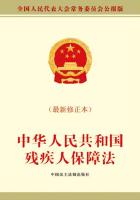By degrees she began to use him.Doing this, however, she lost the weekly payment of twelve dollars.
"You want to pay me to-day," she said one Tuesday, about this time.
"How much?" he asked.
She understood well enough what it meant.
"Well, about five dollars," she answered."I owe the coal man."
The same day he said:
"I think this Italian up here on the corner sells coal at twenty-
five cents a bushel.I'll trade with him."
Carrie heard this with indifference.
"All right," she said.
Then it came to be:
"George, I must have some coal to-day," or, "You must get some meat of some kind for dinner."
He would find out what she needed and order.
Accompanying this plan came skimpiness.
"I only got a half-pound of steak," he said, coming in one afternoon with his papers."We never seem to eat very much."
These miserable details ate the heart out of Carrie.They blackened her days and grieved her soul.Oh, how this man had changed! All day and all day, here he sat, reading his papers.
The world seemed to have no attraction.Once in a while he would go out, in fine weather, it might be four or five hours, between eleven and four.She could do nothing but view him with gnawing contempt.
It was apathy with Hurstwood, resulting from his inability to see his way out.Each month drew from his small store.Now, he had only five hundred dollars left, and this he hugged, half feeling as if he could stave off absolute necessity for an indefinite period.Sitting around the house, he decided to wear some old clothes he had.This came first with the bad days.Only once he apologised in the very beginning:
"It's so bad to-day, I'll just wear these around."
Eventually these became the permanent thing.
Also, he had been wont to pay fifteen cents for a shave, and a tip of ten cents.In his first distress, he cut down the tip to five, then to nothing.Later, he tried a ten-cent barber shop, and, finding that the shave was satisfactory, patronised regularly.Later still, he put off shaving to every other day, then to every third, and so on, until once a week became the rule.On Saturday he was a sight to see.
Of course, as his own self-respect vanished, it perished for him in Carrie.She could not understand what had gotten into the man.He had some money, he had a decent suit remaining, he was not bad looking when dressed up.She did not forget her own difficult struggle in Chicago, but she did not forget either that she had never ceased trying.He never tried.He did not even consult the ads in the papers any more.
Finally, a distinct impression escaped from her.
"What makes you put so much butter on the steak?" he asked her one evening, standing around in the kitchen.
"To make it good, of course," she answered.
"Butter is awful dear these days," he suggested.
"You wouldn't mind it if you were working," she answered.
He shut up after this, and went in to his paper, but the retort rankled in his mind.It was the first cutting remark that had come from her.
That same evening, Carrie, after reading, went off to the front room to bed.This was unusual.When Hurstwood decided to go, he retired, as usual, without a light.It was then that he discovered Carrie's absence.
"That's funny," he said; "maybe she's sitting up."
He gave the matter no more thought, but slept.In the morning she was not beside him.Strange to say, this passed without comment.
Night approaching, and a slightly more conversational feeling prevailing, Carrie said:
"I think I'll sleep alone to-night.I have a headache."
"All right," said Hurstwood.
The third night she went to her front bed without apologies.
This was a grim blow to Hurstwood, but he never mentioned it.
"All right," he said to himself, with an irrepressible frown, "let her sleep alone."














